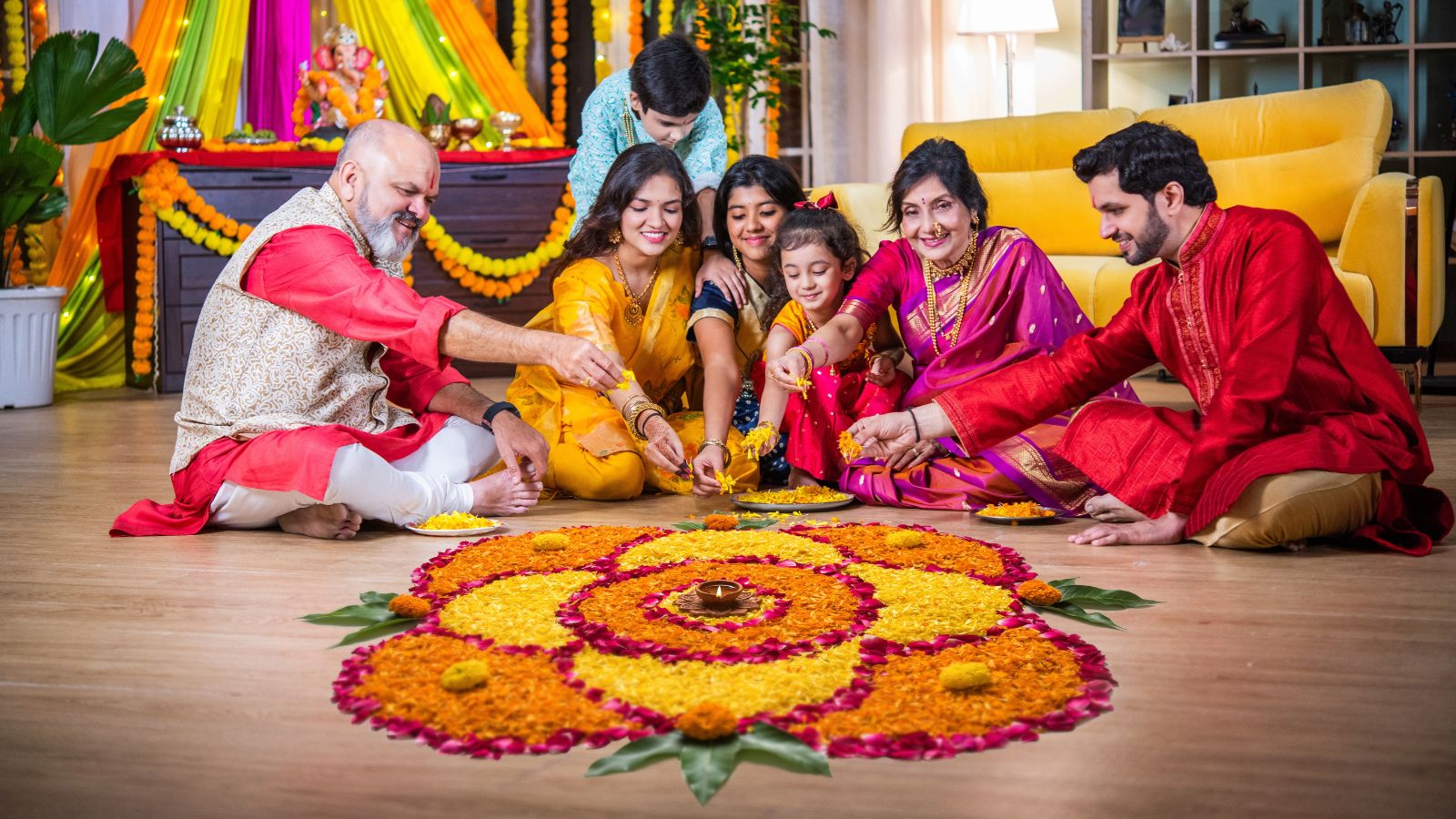These days, it’s common to see the true meanings of religious holidays overshadowed by modern celebrations and commercial interests. Many holidays that once held deep spiritual significance have gradually shifted away from their original purposes. This article explores various religious holidays that have drifted far from their roots, highlighting how their observance has evolved over time.
Diwali

Diwali, celebrated by various religions, marks the victory of light over darkness and good over evil, based on tales like that of Lord Rama. However, the festival’s profound spiritual messages often get lost in its commercialization, turning into a grand occasion of shopping, fireworks, and gifts.
Hanukkah

Hanukkah, the Jewish Festival of Lights, commemorates the Maccabean Revolt and the miracle of the oil, symbolizing resilience and faith. Its observance can be complicated by its proximity to Christmas, adopting similar commercial and cultural practices such as gift-giving and decorations.
Eid al-Fitr

After Ramadan’s month of fasting, Eid al-Fitr brings Muslims worldwide together in a celebration marked by prayers, feasting, and community joy. However, the large-scale celebrations and social pressures can sometimes distract from Eid’s deeper spiritual meanings, focused on gratitude and renewal.
Yom Kippur

Yom Kippur stands as Judaism’s most solemn day, dedicated to repentance through prayer and fasting. Today, keeping the day’s sacredness can be challenging, as the day’s quiet mood contrasts sharply with daily life’s hustle. Finding ways to deepen the spiritual experience, such as dedicating time for personal reflection and community service, can help maintain the holiness of Yom Kippur for modern Jews today.
Vesak

Vesak, a day honoring Buddha’s birth, enlightenment, and passing into Nirvana, is a key event in Buddhism that encourages followers to reflect on the teachings of peace and compassion. Despite its significance, the holiday’s spiritual aspects can be dimmed by the tourism and commercial interests.
Holi

This joyous occasion, rich in cultural and spiritual symbolism, has evolved into a global party that sometimes overlooks its religious roots and raises health concerns due to synthetic color use. Ensuring Holi retains its essence involves promoting its natural colors, focusing on its historical significance, and encouraging activities that reflect the festival’s spirit of unity and growth.
Thanksgiving

The significance of Thanksgiving has evolved over time, turning into a preparation season for Black Friday. It is now more about consuming goods, most of which we don’t need. WalletGenius suggests practical ways to celebrate thoughtfully without succumbing to holiday consumerism, emphasizing budgeting, homemade meals, and focusing on spending time together.
Rosh Hashanah

Rosh Hashanah is all about kicking off the Jewish New Year right, focusing on self-reflection, renewal, and the powerful sounds of the shofar. It’s this special blend of cultural celebration and deep religious introspection that makes it unique. It isn’t just a festive time, but a chance to truly renew oneself for the year ahead.
Mawlid al-Nabi

Mawlid al-Nabi celebrates the birthday of the Prophet Muhammad, an occasion that brings about varied emotions and practices within the Islamic community. While it’s a time to reflect on and honor the teachings of the Prophet, many focus on the debates about the way it’s observed.
Passover

Passover is a time to remember the liberation of the Hebrews from Egyptian slavery, a story of faith and freedom at its core. However, as times change, so do the ways we observe this ancient holiday, with commercialization posing new challenges. This seems to be a common theme with the holidays on this list.
Sukkot

Sukkot, or the Festival of Booths, is a beautiful observance rooted in agriculture and history, where building and dwelling in Sukkahs remind us of divine protection and reliance on God. Yet, as modern life gets in the way, the essence of Sukkot risks being overshadowed by materialism and comfort.
Christmas

Christmas, a time of spiritual reflection and joy in Christian tradition, has increasingly become centered around shopping and festivities. According to Demandsage, people spend over a trillion pounds on Christmas around the world. Hard to imagine all that spending is for Baby Jesus.
Ramadan

Ramadan, the Islamic month of fasting, is a period dedicated to prayer, reflection, and community, as highlighted in the Quran. It’s a time meant for spiritual growth and purification. Yet, the essence of Ramadan can be overshadowed by lavish iftar parties and commercial activities, which can distract from its purpose.
Easter

Easter is a key Christian holiday celebrating Jesus Christ’s resurrection, rooted in biblical stories and church traditions. However, its deep religious meaning often gets lost amidst modern commercial practices, like the widespread use of Easter eggs, bunnies, and sweets. These elements, though fun, can distract from Easter’s core as a time for renewal and spiritual reflection.
Lent

Britannica defines Lent as a period of penitential preparation for Easter. Originally, its purpose was for fasting, prayer, repentance, and almsgiving leading up to Easter. However, today, it is more about celebrating, and rituals like spring cleaning that the season was never about.
Pentecost

This event, happening 50 days after Easter, symbolizes the empowerment of the Apostles with the Holy Spirit’s gifts, enabling them to preach the Gospel to all nations. According to the Catholic News Agency, it is the fulfillment of Christ’s promise that the Apostles would be “clothed with power” to spread the Gospel.
Ashura

Ashura is a holy day of remembrance in Islam, commemorating the martyrdom of Husayn ibn Ali and other surrounding significant events. It’s observed with deep respect, especially within the Shia community, marking a day of mourning and reflection. While still respected, Ashura has been diluted by modern distractions and commercial influences, reducing its spiritual depth for some.

